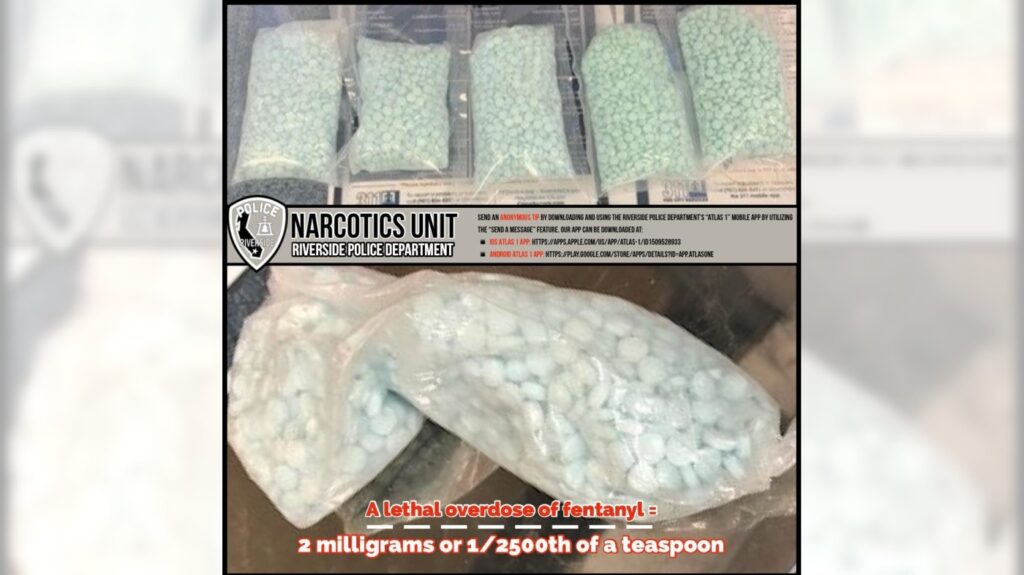
On the same day that state legislators shot down one bill to increase penalties for selling fentanyl, Assemblywoman Cottie Petrie-Noris pitched another that would send the worst fentanyl dealers to prison for 20 years to life.
But Petrie-Norris, D-Laguna Beach, acknowledged that even with the rise of synthetic, cheap fentanyl — sparking a wave of drug deaths nationally and in Southern California — her bill, AB 2246, faces an uphill battle getting through the Assembly Public Safety Committee.
“We know it’s going to be a tough fight,” Petrie-Norris said.
For several years, bills that would stiffen penalties on fentanyl dealers have hit a brick wall in Sacramento from lawmakers wary of repeating mistakes seen during the “War on Drugs” era. Tougher sentences, many note, did little to deter traffickers, and unequal sentencing patterns too often targeted people of color. Legislators have been loathe to pile on sentencing enhancements that they fear will perpetuate those imbalances.
Petrie-Norris held a virtual news conference Tuesday, March 29, to promote her bill even as a similar proposal, AB 1955, by Assemblywoman Janet Nguyen, R-Garden Grove, was being rejected by the public safety committee on a 4-2 vote. The committee will allow Nguyen to amend her bill and bring it back.
“It’s unfortunate the majority of the committee opposes any kind of (criminal) enhancement for anything,” said Assemblyman Tom Lackey, R-High Desert, who is a member of the committee and voted to approve Nguyen’s bill.
“(But) this whole fentanyl epidemic is a huge threat to our public safety,” Lackey continued.
Fentanyl is typically 50 to 100 times more powerful than morphine and often cheaper to make and distribute. Federal data shows the drug — linked to the deaths of musicians Prince, Tom Petty and Mac Miller and Angels pitcher Tyler Skaggs, among others — has been key to a national spike that saw overdose deaths hit more than 100,000 people during a recent 12-month window. Petrie-Norris said about 10 people a day die from fentanyl use in California and Orange County Sheriff Don Barnes told a news conference that fentanyl deaths in Orange County jumped from 37 in 2016 to 693 last year.
“Fentanyl is flooding our community,” Barnes said, describing it as the worst epidemic to hit the United States, aside from COVID-19.
Petrie-Norris’ bill would impose a sentence of 20-years to life for fentanyl sales that result in death. It also would make possession of more than two grams of fentanyl — enough for 2,000 lethal doses — a felony subject to as much as four years in prison.
The bill also attempts to protect children who are being targeted online by dealers peddling fake prescription pills on platforms like SnapChat, WhatsAp, Instagram and Facebook, she said. Often, oxycodone and xanax pills sold on line are actually counterfeit fentanyl.
Petrie-Norris wants fentanyl to be classified as a Schedule 1 drug, with sentencing enhancements for anyone convicted of selling it in areas near children, and via social media.
“As a legislator and a mom, this keeps me up at night,” she said.
The goal of AB 2246 is to target traffickers who Petrie-Norris said are responsible for the rise in fentanyl deaths. “We have to ensure that for those who are profiting from the fentanyl crisis, poisoning our kids, the punishment will fit the crime.”
Some district attorneys in Orange, Riverside and San Bernardino counties are experimenting with charging some fentanyl dealers with murder if their sales become fatal. But it is a strategy fraught with pitfalls. Petrie-Norris’ bill is an attempt to get it codified.
In hopes of winning over a majority on the public safety committee, Petrie-Norris has enlisted an activist group to start a petition that will reach out to voters represented by committee members.
Leading that charge is Jaime Puerta of Santa Clarita and his group, Victims of Illicit Drugs. Puerta is the father of 16-year-old Daniel Puerta-Johnson, who died in 2020 after taking what he thought was an Oxy pill that was actually laced with fentanyl.
“We speak on behalf of our loved ones who no longer speak for themselves,” Puerta said. “Drug dealers who knowingly sell fake pills must suffer the consequences of their actions.”
His son had obtained his pill through the social medium SnapChat, he said.
Barnes said illicit drug manufacturers aren’t trying to kill their clients. But they are not the best of chemists. They are likely infusing their wares with fentanyl in order to get their clients hooked on the drug — and they view the fatalities as “loss leaders,” Barnes said.
